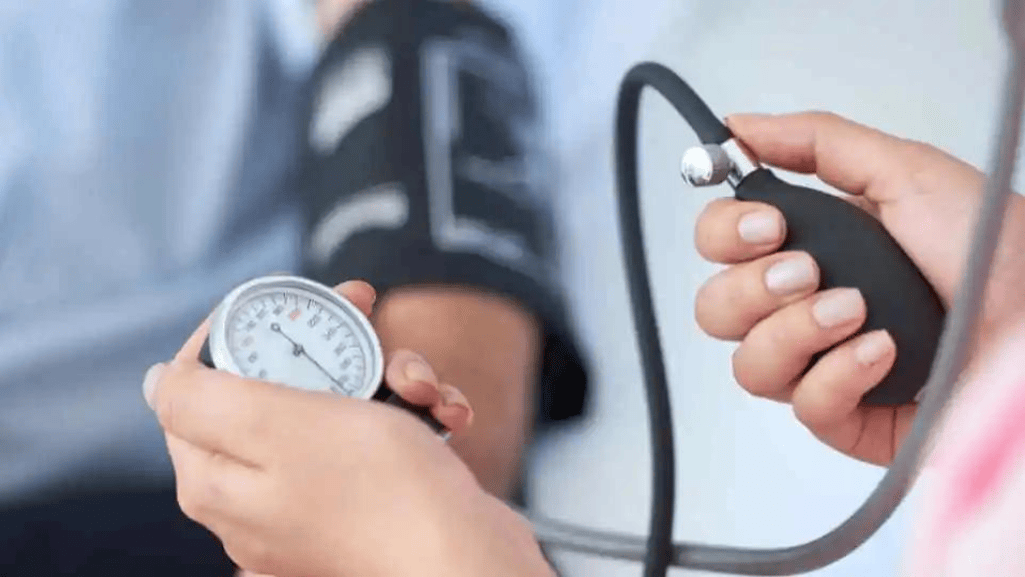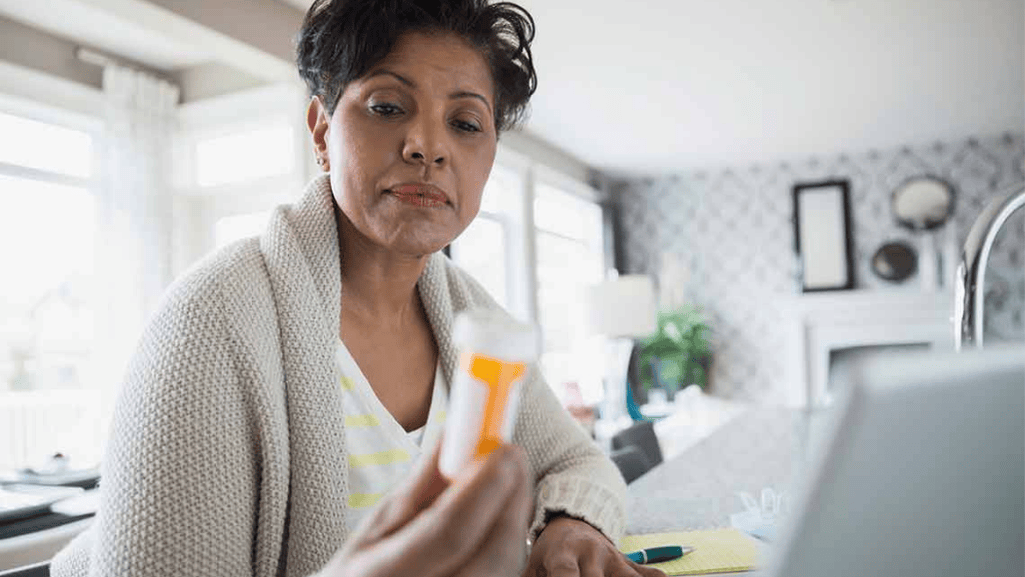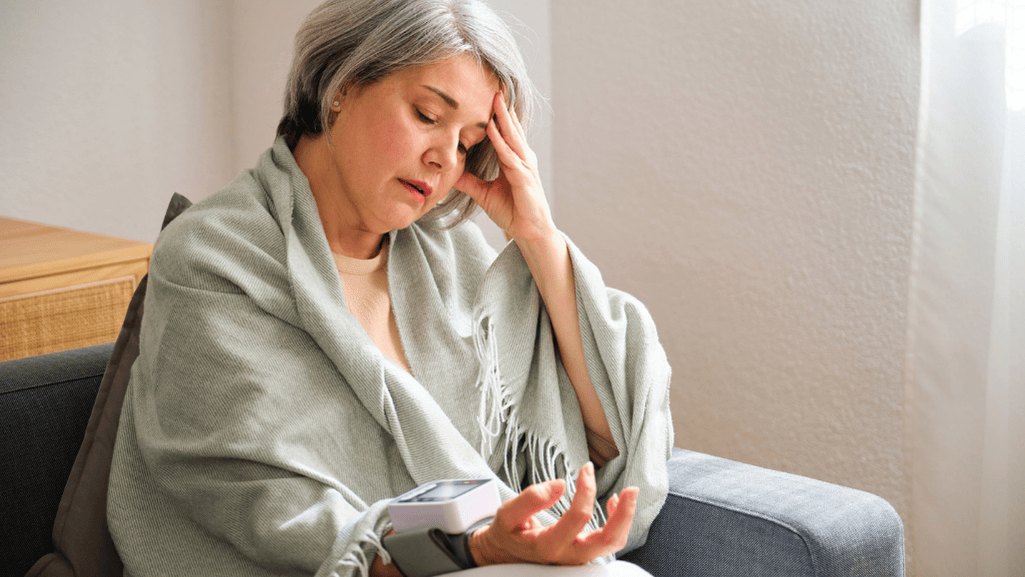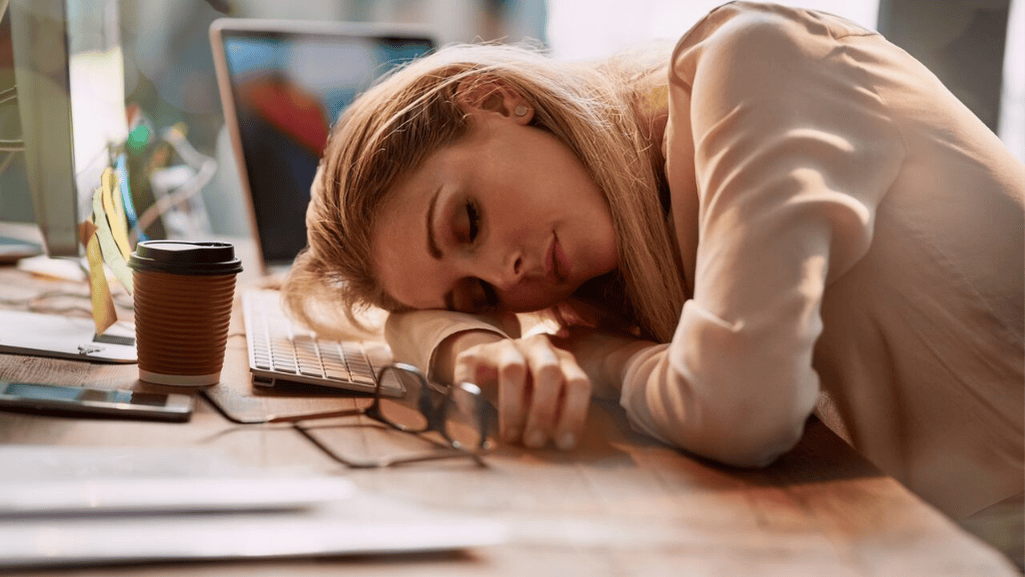High blood pressure, or hypertension, is a big health issue for millions globally. Doctors use medicines like beta-blockers, diuretics, and ACE inhibitors to manage it. These drugs help lower blood pressure but can also cause side effects like fatigue and tiredness.
If you’re feeling very tired while taking these meds, it’s important to know why. Understanding the link between your meds and energy levels is key.
Many people taking blood pressure meds feel tired. These drugs can affect brain chemicals called neurotransmitters. This can make you feel drowsy, weak, and low on energy, affecting your daily life.
Working closely with your doctor is vital. They can help manage side effects while treating your high blood pressure right.
Key Takeaways
- Blood pressure medications can cause fatigue as a side effect
- Beta-blockers, diuretics, and ACE inhibitors may lead to tiredness
- Hypertension drugs can affect neurotransmitters in the brain, causing drowsiness and low energy
- Collaborating with your doctor is crucial to manage side effects while treating high blood pressure effectively
- Adjusting medication dosage, exploring alternative treatments, and making lifestyle changes can help alleviate fatigue from antihypertensives
Understanding the Link Between Blood Pressure Medications and Fatigue
Many people with high blood pressure struggle with feeling tired. This is because blood pressure medicines can affect how our bodies work. Some drugs can make us feel very tired.
The American Heart Association says high blood pressure is a big problem. It can lead to heart attacks and strokes if not treated. Doctors give medicines to help control blood pressure, but these can sometimes make us feel very tired.
Beta-blockers slow down the heart and make it work less hard. This can make us feel weak and tired at first. Diuretics help get rid of extra salt and water but can also make us feel tired and cause muscle cramps.
Chronic stress is a big problem for high blood pressure and can make us feel very tired. The American Psychological Association says stress can mess with our sleep, hormones, and brain chemistry, making us feel even more tired.
There are things we can do to help prevent high blood pressure. We can eat right, exercise, drink less alcohol, and manage stress. Doing these things can help fight off the tiredness caused by blood pressure medicines and make us feel better overall.
| Blood Pressure Category | Systolic (mm Hg) | Diastolic (mm Hg) |
|---|---|---|
| Normal | Less than 120 | Less than 80 |
| Elevated | 120-129 | Less than 80 |
| Stage 1 Hypertension | 130-139 | 80-89 |
| Stage 2 Hypertension | 140 or higher | 90 or higher |
| Hypertensive Crisis | Higher than 180 | Higher than 120 |
If you’re feeling very tired because of your blood pressure medicine, talk to your doctor. They might be able to change your medicine or suggest other ways to help you feel better. Making lifestyle changes can also help manage your blood pressure and reduce tiredness.
Common Types of Blood Pressure Medications That Cause Tiredness
Many blood pressure medications can make you feel tired, sleepy, and weak. These drugs lower blood pressure in different ways. But, they can also make you feel fatigued. Let’s look at some common medications that can cause tiredness.
Beta-blockers
Beta-blockers, like atenolol and metoprolol, slow down your heart and make it pump less forcefully. They’re good at lowering blood pressure but can make you feel tired. Studies show that beta-blockers can slow your heart rate, leading to less energy.
Diuretics
Diuretics, or “water pills,” help get rid of extra water and salt. But, they can cause dehydration and imbalances in electrolytes. This can make you feel weak and tired. Side effects like frequent urination and muscle cramps can also make you feel sluggish.
Angiotensin-converting Enzyme (ACE) Inhibitors
ACE inhibitors relax blood vessels, making it easier for your heart to pump blood. They’re usually safe but can cause dizziness and weakness. These can make you feel tired. Other side effects like dry cough and low blood pressure can also make you feel drowsy.
Not everyone gets these side effects, and how bad they are can vary. If you’re always tired on your meds, talk to your doctor. They might change your dosage, switch you to something else, or suggest lifestyle changes. It’s key to work with your doctor to find the right balance for you. For more on medications that cause chronic fatigue, ask your doctor or pharmacist.
Mechanisms Behind Blood Pressure Meds-Induced Fatigue
Blood pressure medications can cause exhaustion and fatigue in different ways. They affect the central nervous system and the balance of neurotransmitters. Knowing how these work can help manage the side effects of hypertension drugs and improve life quality.
Effects on the Central Nervous System
Some blood pressure meds, like midodrine, can make you feel tired. They change how the central nervous system controls the heart. This can make you feel less awake and alert, leading to weariness from hypertension medication.
Research shows that people taking these meds and not sleeping well feel more tired. It’s important to get enough sleep when managing high blood pressure.
Interactions with Neurotransmitters
Blood pressure meds can also affect neurotransmitters. These chemicals help nerve cells talk to each other. Changes in these chemicals can make you feel tired and sluggish.
Feeling tired can also raise your blood pressure. Studies using blood pressure monitors have shown this. It’s linked to how your mood and blood pressure are connected.
Chronic fatigue syndrome, a condition characterized by persistent and unexplained fatigue, has been linked to various factors, including autonomic nervous system dysfunction, reduced vagal tone, and cardiac abnormalities. Prevalence rates of chronic fatigue syndrome range between 0.1% and 2.5% in the general population, with 65% of affected individuals also experiencing psychiatric disorders.
Medicines like modafinil can help with fatigue but might not be safe for everyone. They can increase heart rate and blood pressure. Taking blood pressure meds at night instead of in the morning can improve sleep and lower heart risk.
| Factor | Impact on Fatigue |
|---|---|
| Short Sleep Duration | Increased probability of fatigue in blood pressure medication users |
| Feeling Tired | Elevated systolic blood pressure compared to neutral state |
| Modafinil | Raises heart rate and blood pressure, potentially inducing fatigue in cardiovascular patients |
| Evening Dosing of BP Meds | Enhanced sleep quality and reduced cardiovascular risk compared to morning dosing |
Managing Fatigue Caused by Hypertension Drugs
If you’re feeling tired from blood pressure pills, you’re not alone. Many people feel tired as a side effect of their treatment. These medications help control high blood pressure but can make you feel very tired. Luckily, there are ways to fight this tiredness and feel better.
Adjusting Medication Dosage or Timing
Working with your doctor to change your medication can help. Taking your pills at night might help you feel more awake during the day. Your doctor might also lower your dosage or switch you to a different pill that doesn’t make you so tired.
Exploring Alternative Treatments
If changing your pills doesn’t help, you might want to try something else. Your doctor could suggest newer pills that have fewer side effects. Some options include:
- Angiotensin II receptor blockers (ARBs)
- Calcium channel blockers (CCBs)
- Renin inhibitors
These pills work differently than older ones, which can make you tired. A study in the Journal of Hypertension showed that ARBs can make you feel less tired than beta-blockers.
Lifestyle Modifications to Boost Energy Levels
Changing your lifestyle can also help fight fatigue. Here are some tips:
- Regular exercise: Doing moderate activity for 30 minutes a day can boost your energy and fight tiredness.
- Staying hydrated: Drinking lots of water can help fight fatigue and keep you feeling good.
- Maintaining a consistent sleep schedule: Getting 7-9 hours of sleep each night and keeping a regular sleep routine can help your body stay in sync.
- Stress management: Using techniques like deep breathing, meditation, or yoga can help reduce stress and increase energy.
By making these lifestyle changes and working with your doctor, you can manage tiredness from your pills. Always talk to your doctor before changing your treatment plan.
| Blood Pressure Category | Systolic (mmHg) | Diastolic (mmHg) |
|---|---|---|
| Normal | Less than 120 | Less than 80 |
| Elevated | 120-129 | Less than 80 |
| High (Stage 1) | 130-139 | 80-89 |
| High (Stage 2) | 140 or higher | 90 or higher |
| Hypertensive Crisis | Higher than 180 | Higher than 120 |
can blood pressure meds make you tired
If you’re feeling tired from blood pressure meds, you’re not alone. Many people taking these drugs feel tired and lack energy. These medicines help control blood pressure but can also make you feel weak.
According to MedlinePlus, fatigue is a common side effect of these drugs. Other side effects include headaches, dizziness, and upset stomach. These usually go away in a few weeks as your body gets used to the medicine. But, if you’re still feeling tired, talk to your doctor.
There are different types of blood pressure medicines, and they can affect you in different ways. Beta-blockers, for example, can make your heart beat slower and feel weaker. Diuretics can cause dehydration and imbalance of electrolytes, making you tired. ACE inhibitors and ARBs can also make you feel tired by relaxing blood vessels and lowering blood pressure.
“There isn’t a significant connection between high blood pressure (hypertension) and fatigue according to preventive cardiologist Dr. Luke Laffin.”
High blood pressure itself might not make you tired, but the medicines for it can. Doctors might give you more than one medicine to work better, which can make side effects like tiredness more likely.
To fight fatigue from blood pressure meds, try these:
- Talk to your doctor about changing your medicine dosage or timing
- Look into other treatments or medicines with fewer side effects
- Make lifestyle changes to boost your energy, like exercise, a healthy diet, and enough sleep
| Blood Pressure Medication Class | Potential Impact on Energy Levels |
|---|---|
| Beta-blockers | Can slow heart rate and reduce force of heart contractions, leading to fatigue |
| Diuretics | May cause dehydration and electrolyte imbalances, contributing to tiredness |
| ACE Inhibitors and ARBs | Can cause weariness as they relax blood vessels and lower blood pressure |
Remember, taking your medicine as directed is key to managing high blood pressure. It helps prevent serious health problems like heart attack and stroke. If you’re feeling very tired on your meds, talk to your doctor to find the right treatment for you.
When to Consult Your Doctor About Medication-Related Tiredness
Fatigue is a common side effect of many blood pressure medications. It’s important to know when it becomes a concern. If you’re feeling very tired from your blood pressure medicine, talk to your doctor. They might need to change your treatment plan.
Persistent or Severe Fatigue
If you’re always tired from your hypertension therapy, tell your doctor. Feeling tired all the time can really affect your life. Your doctor might change your medication or try a different treatment to help you feel better.
“I was so tired all the time after starting my blood pressure medication. It was affecting my work and my ability to spend time with my family. Talking to my doctor about the issue was the best decision I made. We adjusted my medication, and I feel so much better now.” – Sarah, 45
Impaired Daily Functioning
If your medication makes you too tired to do daily tasks, talk to your doctor. They can help you find ways to manage your tiredness. This might include changing when you take your medication or suggesting lifestyle changes.
- Adjusting the timing of your medication doses to minimize the impact on your daily routine
- Implementing lifestyle modifications, such as regular exercise, stress management techniques, and a balanced diet, to boost energy levels
- Considering alternative or complementary therapies, such as yoga or acupuncture, to help alleviate fatigue symptoms
| Medication Class | Examples | Potential Fatigue Impact |
|---|---|---|
| Beta-blockers | Atenolol, Metoprolol | Moderate to high |
| Diuretics | Furosemide, Hydrochlorothiazide | Low to moderate |
| ACE Inhibitors | Lisinopril, Ramipril | Low to moderate |
| Angiotensin Receptor Blockers | Losartan, Valsartan | Low to moderate |
| Calcium Channel Blockers | Amlodipine, Diltiazem | Low to moderate |
Never stop taking your blood pressure medication without talking to your doctor. Stopping suddenly can be dangerous. By working with your doctor, you can find a treatment plan that works for you. This way, you can manage your energy levels and keep your heart healthy.
Balancing the Benefits and Side Effects of Blood Pressure Treatment
When treating high blood pressure, finding a balance is key. It’s important to weigh the good of lowering blood pressure against the bad of medication side effects. Remember, untreated high blood pressure can lead to serious health issues like heart disease and stroke.
Working with your doctor is crucial to find the right treatment. They can help pick a medication and dosage that works for you. Regular check-ups ensure your treatment plan is tailored to your needs, even if you feel tired from the medication.
Not all blood pressure medications make you tired. Some, like ARBs and CCBs, are less likely to cause fatigue. Your doctor can choose the best medication for you based on your condition and lifestyle.
Lifestyle changes also play a big role in managing high blood pressure. Eating healthy, exercising, and managing stress can help control blood pressure. These changes can also improve your overall health.
“The key to successfully managing hypertension is finding the right balance between medication and lifestyle changes. It may take some trial and error, but with the guidance of your healthcare provider, you can find a treatment plan that works for you.” – Dr. Sarah Johnson, Cardiologist
If you’re feeling very tired from your medication, talk to your doctor. They might adjust your dosage, switch medications, or explore other options. It’s a decision that should be made together.
For more information on the relationship between pain medications and drowsiness, check out this informative article on sleepy pain medicine.
Managing high blood pressure is a long-term effort. Finding the right balance takes time. By working with your doctor and making healthy choices, you can control your blood pressure and reduce tiredness from medication.
Conclusion
Blood pressure medications are key in managing high blood pressure and preventing heart problems. However, they can cause side effects like feeling very tired. This is because certain drugs affect the brain and nervous system, leading to less energy.
If you’re feeling very tired while taking these medications, talk to your doctor right away. They can adjust your treatment to balance managing your blood pressure and reducing side effects. Also, making healthy lifestyle choices like exercising, managing stress, and eating well can help increase your energy.
It’s important to remember that treating high blood pressure is about keeping your heart healthy while living well. By working with your doctor and knowing about your medication’s side effects, you can manage high blood pressure effectively. This way, you can reduce the tiredness caused by your medication and enjoy your daily life more.






